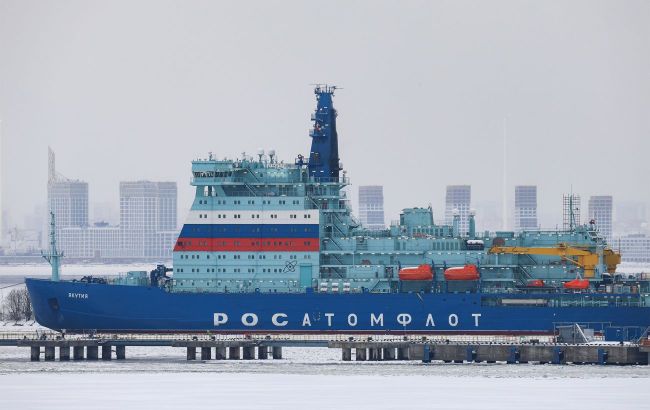Sanctions halt construction: Russia cancels contract for two innovative icebreakers
 Illustrative photo: sanctions disrupted icebreaker construction in Russia (Getty Images)
Illustrative photo: sanctions disrupted icebreaker construction in Russia (Getty Images)
Rosmorport has terminated its contract with the Onega Shipbuilding Plant for the construction of two innovative icebreakers worth a total of 18.5 billion rubles. The vessels were to run on diesel fuel and liquefied gas and be capable of breaking ice up to 1.5 meters thick, according to the Russian outlet Vedomosti.
It turns out that in 2021, a contract was signed for the construction of two 95-meter Icebreaker7-class icebreakers with a capacity of 12–14 MW. These vessels were to be capable of navigating through ice up to 1.5 meters thick and operating on both diesel fuel and liquefied natural gas.
Notably, such icebreakers had never before been built in Russia.
The plan was for them to be used year-round in the Baltic, White, and Barents Seas, as well as in the Arctic Ocean during the summer–autumn season.
The initial delivery date to the customer was set for 2024, later postponed to 2026, but actual construction never took place due to sanctions.
Initially, the Turkish shipyard Kuzey Star Shipyard was to be involved as a subcontractor, but the agreement fell through after Russia’s invasion of Ukraine.
Despite no work being done, Rosmorport had already paid the shipbuilding plant an advance of 9.27 billion rubles. Now the plant is obliged to return these funds within five working days.
Sanctions against Russia
Еhe European Union recently adopted its 18th package of sanctions against Russia. The list includes 22 banks, four companies linked to the Russian Direct Investment Fund, as well as 26 entities connected to Russia’s military-industrial complex and other sectors.
EU foreign policy chief Kaja Kallas described this package as one of the strongest since the start of Russia’s full-scale war against Ukraine. According to the Estonian foreign minister, Brussels has already begun work on preparing the next package of sanctions.
At the same time, Ukraine has synchronized its restrictions with the European sanctions and introduced new measures targeting Russia’s critical resources.
Аearing secondary sanctions, Vietnamese banks have started imposing additional requirements on Russian companies when processing payments.

